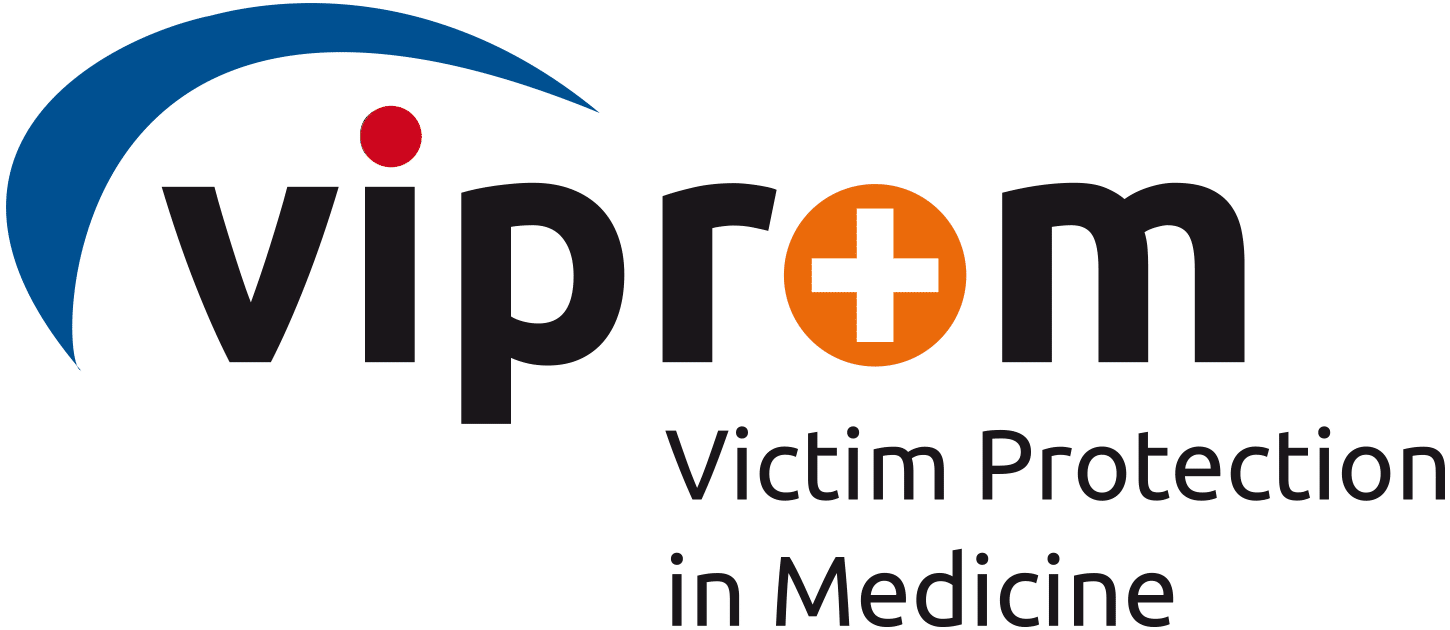
“I am pleased to be involved in advocating the topic of Domestic Violence (DV) and enabling low-threshold qualification of employees in the medical care system on how to deal with DV.”1
25 November marks the International Day for the Elimination of Violence Against Women.
Every year, we read the statistics on femicides, see the protests and yet, despite this, we are facing a global backlash on women’s rights. Every year we are questioning: can we actually change something?
A SIMPLE “YES” WOULD BE TOO EASY – BUT THERE ARE REASONS TO STAY OPTIMISTIC!
On this year’s International Day for the Elimination of Violence Against Women, we therefore want to highlight good practices and the opportunities that lie in interdisciplinary cooperation and allyship.
Healthcare professionals hold significant responsibility in recognising and addressing instances of Domestic Violence (DV). During the VIPROM-project, we have seen how many medical professionals are aware of the key role they inherit. The level of engagement left us speechless – in the best possible way. Yet, some individuals wanted to go even further: they were eager to contribute to sustainable and structural change. This is how the idea of the “VIPROM Changemaker” was born.
“CHANGEMAKER” – SOUNDS LIKE A LOT OF RESPONSIBILITY?
On 28 October 2025, VIPROM partners Prof. Dr. Bettina Pfleiderer (UM) and Olga Damsen (GESINE Intervention) explored exactly that question. During the online “Changemaker Event”, held with a small group of medical professionals dedicated the topic, they asked participants:
“What do YOU associate with being a Changemaker”?
“Out of the box thinking”, “to be persistent”, “to raise awareness” were just a few of the answers shared. As the breakout sessions unfolded, one thing became clear: everyone was already a Changemaker in their own unique way, within their respective regional contexts. Some participants mentioned being part of a regional Domestic Violence advisory board, while others described how they continue to advocate for the issue within their institutions – despite all challenges.
During this fruitful event, effective ways of initiating structural change were discussed.
LET’S GET PRACTICAL! FOUR WAYS TO BE A CHANGEMAKER

Best Practice I: Lead by Professional Example
Dr. Andreas Leven, Chief Physician at the Women’s Clinic at Helios Hospital in Schwelm, Germany, is a practicing gynecologist, teacher and member of the VIPROM Advisory Panel.
Through his local cooperation with the victim support service GESINE Intervention, he has received specialised training in identifying Domestic Violence (DV) and supporting victims. Moreover, he actively passes on this knowledge to his medical students. In this way, he not only supports victims as a frontline responder but also raises awareness among the next generation of healthcare professionals.
Best Practice II – Teach Frontline Responders
Educate yourself first – then others. This is another key approach for achieving sustainable change. The VIPROM project provides everything you need to do so:
👉 European Platform on Domestic Violence – modules tailored for the health sector.
Best Practice III – Engage in Local Cooperation
You can make a difference by…
- mapping stakeholders at local and national levels
- introducing yourself to others in the field
- talking to others and those in charge
- publishing papers, giving interviews
- being visible – make it easy for others to find and approach you!
Sometimes one good connection is all it takes!
Not sure where to start? Check your local victim support service and national search engine for women’s shelters.
Would you like to learn more about local cooperation? Watch the recording of Webinar 7 from the European Webinar Series.
Best Practice IV: Engage in International Networks
Participation in international networks enables healthcare professionals to access global evidence, share best practices, and influence policies that strengthen responses to Domestic Violence. These networks bridge clinical experience with systemic change across countries. Examples of such networks include the WAVE Network and others advocating for DV victims.
CONCLUSION
Prof. Dr. Bettina Pfleiderer highlights the value of engaging internationally: “Reducing Domestic Violence as changemaker is easier than you might think! Every small action counts, and together, we can make a difference!“
It is clear that we need stronger laws, perpetrator accountability, and policies that take a firm stance against DV. Yet, examples like these remind us that every small action matters.
MORE INFORMATION ON DOMESTIC VIOLENCE
If you are interested to learn more about Domestic Violence in the health sector, please visit our European training platform on domestic violence.
FOOTNOTE
1. Dr. Andreas Leven, Chief Physician at the Women’s Clinic at Helios Hospital in Schwelm, Germany
ABOUT THE AUTHORS

Olga Damsen, M.A., works as research associate in the EU project VIPROM – Victim Protection in Medicine at GESINE Intervention (Center for prevention, information, protection and support in cases of gender-based violence against women). She holds a Master’s degree in Empowerment Studies with emphasis on Human Rights Policy from the University of Applied Sciences in Düsseldorf. Previously, she has been working in field of psychosocial counselling with refugees and trauma stabilisation of survivors of Domestic and Sexual Violence for more than ten years.
 This project has received co-funding from the European Union’s CERV-2022-DAPHNE programme under grant agreement No. 101095828.
This project has received co-funding from the European Union’s CERV-2022-DAPHNE programme under grant agreement No. 101095828.
Newsletter
Please subscribe here for the VIPROM newsletter:
